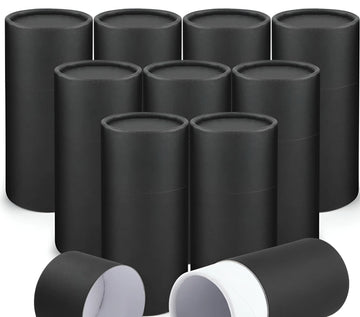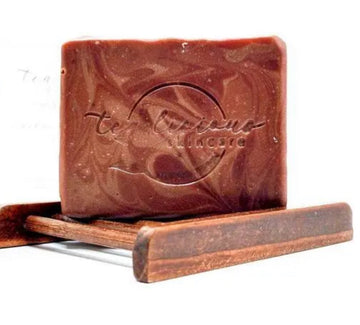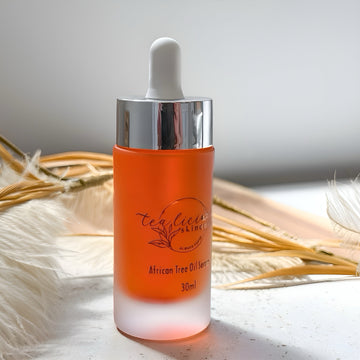The Quality of Ingredients
One of the primary factors contributing to the cost of natural skincare products is the quality of the ingredients used. High-quality, natural ingredients are often sourced from organic farms or sustainable growers, and sometimes from the communities that benefit from their harvesting. This can drive up costs. Unlike synthetic ingredients, which can be produced cheaply in large quantities, and in laboratories, natural ingredients have a more complex production process.
For example, sourcing organic herbs, essential oils, and botanical extracts requires careful cultivation and harvesting. Many small-batch producers prioritize ethically sourced ingredients, which means they may pay more to support farmers who follow sustainable practices. This commitment not only ensures that the products are better for our skin but also supports local economies and promotes environmental stewardship.
The Art of Small-Batch Production
When you buy natural skincare made in small batches, you're not just purchasing a product; you're investing in a craft. Small-batch production allows for greater attention to detail, ensuring that each product is made with care and precision formulation. Unlike large manufacturers who prioritize speed and volume, small producers take the time to formulate their products thoughtfully.
This process involves experimenting with various ingredient combinations, testing for efficacy, and making adjustments to achieve the perfect formulation. The result is a product that is richer in active ingredients and free from harmful fillers. However, this meticulous approach also means that production is slower and more labor-intensive, which naturally raises the cost.
The Impact of Biodegradable Packaging
Another significant factor contributing to the cost of small-batch natural skincare is the choice of packaging. Many small producers prioritize eco-friendly, biodegradable packaging over cheaper, non-biodegradable options. While sustainable packaging is better for the environment, it comes at a higher price. To give a comparison, our natural deodorant containers cost $5.00 per container, whereas the plastic option costs 45c.
Biodegradable materials, such as glass, recycled paper, or plant-based plastics, require a different manufacturing process than traditional packaging. Not only are these materials more expensive to source, but they also tend to have lower production volumes compared to conventional packaging. As a result, small-batch producers may pay a premium for these environmentally friendly options.
Furthermore, using biodegradable packaging aligns with the values of many consumers who are becoming increasingly conscious of their environmental impact. By investing in sustainable packaging, small producers are making a statement about their commitment to the planet. This dedication often resonates with customers who are willing to pay a little more for products that align with their values.
The Hidden Costs of Quality Control
Quality control is another area where small-batch producers invest significantly. Ensuring that each product meets high standards requires rigorous testing and quality assurance processes. This may include testing for purity, safety, and efficacy, which can be time-consuming and costly.
Large manufacturers often cut corners in this area to save money, leading to products that may not be as effective or safe for consumers. However, small-batch producers understand that their reputation relies on the quality of their products. They prioritize thorough testing, which adds to the overall cost of production.
Supporting Local Economies and Sustainable Practices
When you purchase small-batch natural skincare, you're also contributing to the support of local economies and sustainable practices. Many small producers are local artisans who create their products in their communities. By buying from them, you're helping to sustain jobs and promote local craftsmanship.
Additionally, many small-batch producers are committed to sustainable practices that benefit the environment. This could include using renewable energy, minimizing waste, or engaging in fair trade practices. These commitments often come with higher costs, which are reflected in the pricing of their products.
The Value of Transparency and Trust
Another aspect that influences the pricing of small-batch natural skincare is transparency. Many consumers today seek transparency in the products they use, wanting to know where ingredients come from and how they are produced. Small-batch producers often provide detailed information about their sourcing and production processes, fostering trust with their customers.
This level of transparency requires additional effort and resources, from providing information on websites to engaging with customers through social media. However, the value of this trust cannot be overstated. When consumers feel connected to a brand and understand the story behind its products, they are often willing to pay a premium.
The Cost of Education and Advocacy
As a small-batch natural skincare formulator/creator, I also invest time and resources into educating consumers about the benefits of natural ingredients and the importance of sustainable practices. This includes writing blog posts, hosting workshops, and engaging in events that benefit the cause.
The Importance of Self-Care and Well-Being
Finally, I believe it's essential to recognize the value of self-care and well-being that comes with using high-quality natural skincare products. When we invest in our skincare routine, we are not just buying a product; we are prioritizing our health and well-being. Natural ingredients can nourish our skin and enhance our overall sense of self-care.
By choosing small-batch natural skincare, we are often investing in products that promote mindfulness and self-love. The higher cost can be seen as a reflection of the value we place on our self-care rituals and the connection we create with the brands we support.
Conclusion
In conclusion, the higher price of natural skincare made in small batches is a reflection of the quality of ingredients, the artisanal production process, the commitment to sustainable packaging, and the dedication to transparency and trust. As consumers, when we choose to invest in these products, we are supporting local economies, promoting sustainable practices, and prioritizing our health and well-being.
So, the next time you see a small-batch natural skincare product with a higher price tag, remember that you are not just buying a product; you are investing in a philosophy that values quality, sustainability, and self-care. Let's celebrate the artisans behind these products and the positive impact we can make by choosing to support them. After all, our skin—and the planet—deserves the best!
#NaturalOils #SkincareBenefits #Hydration #toxicfree # #Nourishment #Sustainability #CrueltyFree #smallbatch #CleanBeauty #Moisturization #Artisanal#Wellness #Luxury #sustainable






